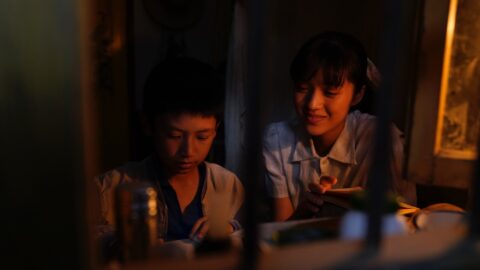Living the Land (Huo Meng, 2025) is set in 1991, but bar a brief mention to contemporary events like the Gulf War and the appearance of a colour TV, it could be set in 1971 — perhaps even 1951. Taking place in a remote village in the Chinese hinterlands, it’s an intimate epic deeply steeped in long-standing traditions sprinkled with the horrors of state control. For Huo, capturing the preservation of local customs as the country was on the cusp of monumental technological advancement, these traditions are not so much worth cherishing as not-too-distant relics of an unenlightened past.
The effortlessly natural Wang Shang stars as ten-year-old Xu Chuang, sent to live with his extended family as his own parents try their luck in Shenzen. His eyes guide the film, especially during its extended funeral sequence, bringing to mind the epic wedding openings of both The Deer Hunter (Michael Cimino, 1978) and The Godfather (Francis Ford Coppola, 1972). This structural gambit is a great way to introduce us to two things: each member of Chuang’s extended family, right from his young aunt to his ancient great-grandmother, as well as the long-handed-down rituals that characterise this small Chinese village.
For the men in charge, especially those charged with administering top-down communist edicts, village life is sweet. Particularly unfortunate are the women, forced to have abortions and marry men they don’t want, and the developmentally-challenged, such as Li Jihau (Zhou Haotian) — misunderstood and bullied by the locals. Huo has a slightly savage side here, coming through in violent and shocking scenes that are nonetheless treated by the camera with a casual, objective-seeming eye. There is a novelistic feel to these scenes of domestic life, eschewing a simple coming-of-age narrative in favour of something far more nuanced and layered.
It never quite clicked for me. Everything is handsomely-mounted here and the entire ensemble work excellently in capturing the rhythms and feel of village life. Nonetheless, this is exactly the type of Chinese production — slow, perceptive, state-of-the-nation-y, critical but not too controversial — that I have seen many a time already play at the Berlinale. While Huo does everything “right” — with very little to fault on a technical level — there’s nothing particularly fresh poking through the edges. It’s one thing to live the land, but you should also feel it too.
Redmond is the editor-in-chief of Journey Into Cinema.





